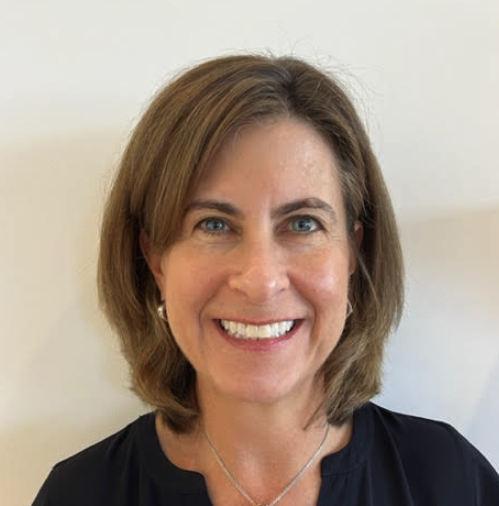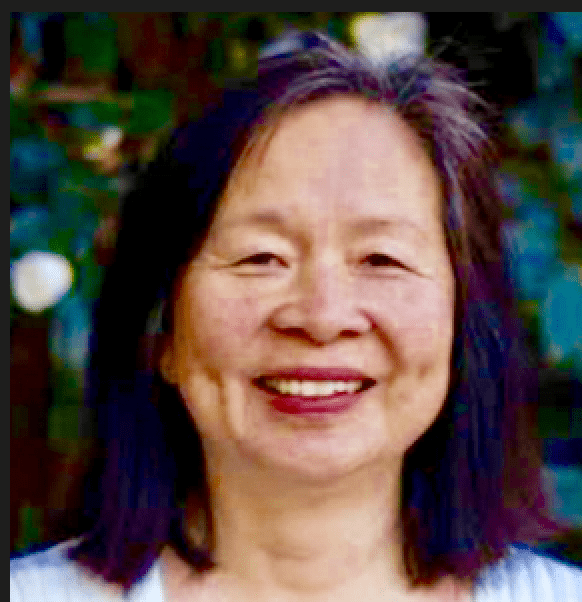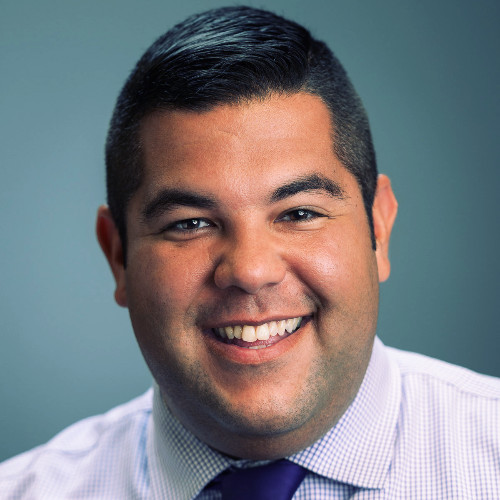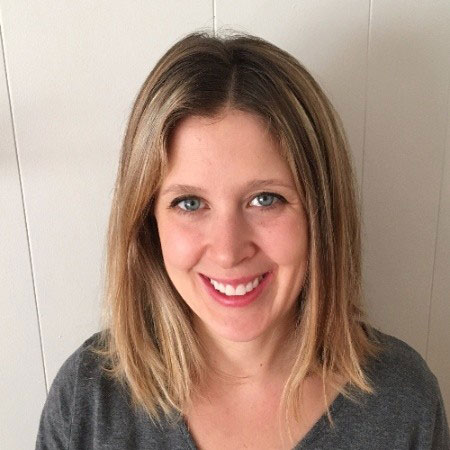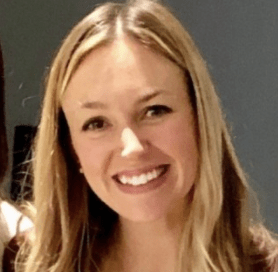
Today, we’re revisiting the topic that strikes fear in many MBA applicants’ hearts: admissions exams. But there’s welcome news on this front as both exams—the GMAT and GRE—received a significant revision this fall. The new GMAT Focus Edition officially launched last month, and the shorter, redesigned exam will replace the current GMAT entirely on February 1, 2024. So, if you plan to apply this season and still need to take the test, you can schedule it now in time for round two and round three deadlines.
On the other hand, if you’re considering the GRE, you’ll be thrilled to know the time has been slashed in half—the formerly four-hour test now clocks in at under two hours.
So, why the sudden change for both exams? “I think the changes in the GMAT were likely prompted by concerns about the GRE eating into their market share,” says Anthony Ritz, SBC’s Director of Test Prep. While that may factor in, GMAC also felt it could make improvements to create a better test. “They’ve been working on this for years to reestablish their position in the market,” Anthony notes.
In the case of the GRE, he believes the shortened test came in response to the GMAT’s changes. Where the GMAT Focus Edition has several format updates, the GRE has simply reduced the number of questions. That allowed ETS to launch the new GRE before the updated GMAT rolled out in November, so many applicants have gotten a head start with a streamlined test experience.
Now that both tests are available, we chatted with Anthony about what MBA applicants can expect with these new format and content changes. You’ll also learn how the tests compare and which you might prefer based on your personal strengths. We hope you find these insights helpful as you navigate your MBA admissions journey.
Partner with Stacy Blackman’s best-in-class GMAT and GRE experts and increase your score significantly. Check out our test prep services here. Request a free game plan chat with SBC’s lead test prep coach by emailing testprep@stacyblackman.com.
Why did both the GRE and GMAT exams launch shortened versions this year?
Anthony: The move clearly comes in response to students’ demands for a shorter, more efficient, and less painful test. GMAC polled many schools and students to determine what was important to them. Overwhelmingly, the students wanted a less demanding test, and the schools wanted shorter and easier tests for the candidates.
It’s worth noting that there are always trade-offs with a shorter test. Fewer questions naturally generate less data on the student. As a result, schools have less information to go on. So, these shorter tests might be a bit less reliable as a metric to determine who’s likely to succeed in business school. That said, GMAC has done several things to preserve reliability and make the GMAT Focus Edition more effective with its changes.
GMAC has been able to do a shorter test and maintain accuracy because they’ve improved their computer adaptive algorithm, which is cutting-edge stuff. It’s now a more intelligent algorithm that can figure out more quickly what level of questions to give people.
Another big thing is that they’re simply shifting what the exam is testing and removing one of the main focuses. That allows them to devote more questions to everything they’re still interested in.
For example, they removed the sentence correction from the GMAT Focus Edition and the essay. They’re deemphasizing some verbal skills schools have said they don’t need the GMAT to test. As such, they can focus more on testing quantitative reasoning and data analysis skills. Their internal numbers say that the test should offer about the same reliability.
Read The GMAT Test: Expert Tips, Tricks & Advice

And how about the changes to the GRE?
Anthony: According to the GRE website, the content on the shorter GRE is not changing—there’s simply less of it. Unlike the GMAT, the GRE has a broader mission of being a test for all graduate programs. By its nature, they must keep their content reasonably generalized.
However, the GRE already has data analysis elements in its math section. That’s something that’s now a renewed emphasis on the GMAT. It’s possible that they will go even further in that direction than the GRE.
Do these changes influence how you recommend students approach the tests, or which exam better matches them?
Anthony: The changes do affect things somewhat. Even if the GRE remains largely the same, the GMAT Focus Edition will have a different question mix than before. It depends on the individual student and their strengths and weaknesses. For example, if your weakness on the old GMAT was grammar skills, that might have been a deterrent. But those language skills are no longer tested there. The GRE still has a very vocabulary-based focus.
For people more concerned about their language skills, shifting toward the GMAT is a better option. However, the GMAT Focus is now much heavier on data analysis. It has a whole counting section of data analysis that wasn’t there before. People worried about their data analytics skills or integrated reasoning might lean more toward the GRE than they otherwise would have.

How do you advise students to prepare for these new, shorter exams?
Anthony: How you prepare for the GRE is the same. Their people have been very clear about that. The GMAT Focus Edition answer is more interesting. GMAC definitely had the goal of reducing prep time. Many tutors agree that the most preparation-heavy section was the sentence correction. Removing that from the test will significantly reduce student study time for the verbal side.
The trade-off is slightly counterbalanced by the fact that now the data analysis counts. You had integrated reasoning before, but schools didn’t know what to do with it. Students didn’t know how much it mattered since it didn’t factor into the primary score. Now it does. So, everyone must adjust and start working to improve on that.
Students should be able to prepare for this skill set more quickly since it’s familiar to many potential MBA applicants. It’s reading charts, graphs, and tables, looking at multiple short sources, and reasoning about them. Many of us do this sort of thing daily in our jobs. The hope is that the net prep time goes down.
One of the significant improvements of the GMAT Focus Edition is that you can now go back and change some of your answers. Can you explain the thinking behind that?
Anthony: Even though it has an adaptive algorithm, the GMAT Focus Edition now allows students to go back and change an answer. Once you’ve answered every question and arrived at the end of the section, you can go back and review as many questions as you want and change the answers of up to three of them.
Listen to B-Schooled Podcast Episode #106: Admissions Test Deep Dive

But there’s no point thinking, “Oh, I’m going to miss the first three on purpose to get easy questions and just go back and fix them later.” That won’t work—they’ve tested it out and made sure.
What it’s meant to do is help students who get stuck on a question. They’ll spend five, six, or even seven minutes on one question because they just can’t let go. Suddenly, they’ve torpedoed their time management. The hope is that giving these students the ability to go back and change answers makes it easier for them to manage their time better.
When students have pacing problems on the GMAT and, to a certain extent, the GRE, it’s usually not that they’re slow on every question. That five-minute, six-minute question here and there really kills you. We’ve always told students, “Let those questions go and move on. And if you miss them, so be it. You’ll get it back later in the test.”
But now it’s even an easier sell to say, “Look, if you’re really struggling with a question and you’re starting to take too long, just let it go. Move on, pick an answer, any answer. And at the end of the section, just go back and if time permits, get an answer at that point.”

Do you have any parting wisdom to share about taking either of these MBA entrance exams?
Anthony: Mental state is so important—and underappreciated—by students. Going into a test feeling comfortable can make a hundred points worth of difference on the GMAT or a similar dramatic difference on the GRE. So, if you feel more comfortable taking one test over the other, that’s far more important than almost any other consideration or perception about which test you “should” prefer.
Even as SBC’s director of test prep, I’m not saying tests are the only thing that matters in MBA admissions. There are a lot of essential pieces that go into it. A high test score helps you pick up a bit where other things on your application may be weaker. But if the test score isn’t quite as solid, other things about your profile may carry you where you want to go.
***
Stacy Blackman Consulting offers multiple services to meet your MBA application needs. From our All-In Partnership to test and interview prep, essay editing, resume review, and much more, we’ve got you covered! Contact us today for a free 15-minute advising session to talk strategy with a Principal SBC consultant.
Here’s a snapshot of the caliber of expertise on our SBC team.
Ashley
Ashley is a former MBA Admissions Board Member for Harvard Business School (HBS), where she interviewed and evaluated thousands of business school applicants for over a six year tenure. Ashley holds an MBA from HBS.
During her HBS years, Ashley was the Sports Editor for the Harbus and a member of the B-School Blades Ice Hockey Team. After HBS, she worked in Marketing at the Gillette Company on Male and Female shaving ...
Kerry
Kerry is a former member of the Admissions Board at Harvard Business School (HBS).
During her 5+ year tenure at HBS, she read and evaluated hundreds of applications and interviewed MBA candidates from a wide range of backgrounds across the globe. She also led marketing and outreach efforts focused on increasing diversity and inclusion, ran the Summer Venture in Management Program (SVMP), and launched the 2+2 Program during her time in Admissions.
Kerry holds a B.A. from Bates College and ...
Pauline
A former associate director of admissions at Harvard Business School, Pauline served on the HBS MBA Admissions Board full-time for four years. She evaluated and interviewed HBS applicants, both on-campus and globally.
Pauline's career has included sales and marketing management roles with Coca-Cola, Gillette, Procter & Gamble, and IBM. For over 10 years, Pauline has expertly guided MBA applicants, and her clients h ...
Geri
Geri is a former member of the Admissions Board at Harvard Business School (HBS).
In her 7 year tenure in HBS Admissions, she read and evaluated hundreds of applications and interviewed MBA candidates from a diverse set of academic, geographic, and employment backgrounds. Geri also traveled globally representing the school at outreach events in order to raise awareness for women and international students. In additio ...
Laura
Laura comes from the MBA Admissions Board at Harvard Business School (HBS) and is an HBS MBA alumnus. In her HBS Admissions role, she evaluated and interviewed hundreds of business school candidates, including internationals, women, military and other applicant pools, for five years.
Prior to her time as a student at HBS, Laura began her career in advertising and marketing in Chicago at Leo Burnett where she worked on th ...
Andrea
Andrea served as the Associate Director of MBA Admissions at Harvard Business School (HBS) for over five years. In this role, she provided strategic direction for student yield-management activities and also served as a full member of the admissions committee.
In 2007, Andrea launched the new 2+2 Program at Harvard Business School – a program targeted at college junior applicants to Harvard Business School. Andrea has also served as a Career Coach for Harvard Business School for both cu ...
Jennifer
Jennifer served as Admissions Officer at the Stanford (GSB) for five years. She holds an MBA from Stanford (GSB) and a B.S. in Chemical Engineering from University of Illinois Urbana-Champaign.
Jennifer has over 15 years experience in guiding applicants through the increasingly competitive admissions process into top MBA programs. Having read thousands and thousands of essays and applications while at Stanford (GSB) Admiss ...
Erin K.
Erin served in key roles in MBA Admissions--as Director at Haas School of Business at UC Berkeley and Assistant Director at Stanford's Graduate School of Business (GSB).
Erin served on the admissions committee at each school and has read thousands of applications in her career. At Haas, she served for seven years in roles that encompassed evaluation, outreach, and diversity and inclusion. During her tenure in Admissions at GSB, she was responsible for candidate evaluation, applicant outreach, ...
Susie
Susie comes from the Admissions Office of the Stanford Graduate School of Business where she reviewed and evaluated hundreds of prospective students’ applications. She holds an MBA from Stanford’s GSB and a BA from Stanford in Economics.
Prior to advising MBA applicants, Susie held a variety of roles over a 15-year period in capital markets, finance, and real estate, including as partner in one of the nation’s most innovative finance and real estate investment organizations. In that r ...
Dione
Dione holds an MBA degree from Stanford Business School (GSB) and a BA degree from Stanford University, where she double majored in Economics and Communication with concentrations in journalism and sociology. Dione has served as an Admissions reader and member of the Minority Admissions Advisory Committee at Stanford.
Dione is an accomplished and respected advocate and thought leader on education and diversity. She is ...
Anthony
Anthony served as the Associate Director of MBA Admissions at the Wharton School at the University of Pennsylvania, where he dedicated over 10 years of expertise.
During his time as a Wharton Admissions Officer, he read and reviewed thousands of applications and helped bring in a class of 800+ students a year. Anthony has traveled both domestically and internationally to recruit a ...
Meghan
Meghan served as the Associate Director of Admissions and Marketing at the Wharton MBA’s Lauder Institute, a joint degree program combining the Wharton MBA with an MA in International Studies.
In her role on the Wharton MBA admissions committee, Meghan advised domestic and international applicants; conducted interviews and information sessions domestically and overseas in Asia, Central and South America, and Europe; and evaluated applicants for admission to the program. Meghan also managed ...
Amy
Amy comes from the Wharton School of the University of Pennsylvania where she was Associate Director. Amy devoted 12 years at the Wharton School, working closely with MBA students and supporting the admissions team.
During her tenure at Wharton, Amy served as a trusted adviser to prospective applicants as well as admitted and matriculated students. She conducted admissions chats with applicants early in the admissions ...
Ally
Ally brings six years of admissions experience to the SBC team, most recently as an Assistant Director of Admission for the full-time MBA program at Columbia Business School (CBS).
During her time at Columbia, Ally was responsible for reviewing applications, planning recruitment events, and interviewing candidates for both the full-time MBA program and the Executive MBA program. She traveled both internationally and dome ...
Erin B.
Erin has over seven years of experience working across major institutions, including University of Pennsylvania, Columbia Business School, and NYU's Stern School of Business.
At Columbia Business School, Erin was an Assistant Director of Admissions where she evaluated applications for both the full time and executive MBA programs, sat on the admissions and merit scholarship committees and advised applicants on which program might be the best fit for them based on their work experience and pro ...
Emma
Emma comes from the MBA Admissions Office at Columbia Business School (CBS), where she was Associate Director.
Emma conducted dozens of interviews each cycle for the MBA and EMBA programs, as well as coordinating the alumni ambassador interview program. She read and evaluated hundreds of applications each cycle, delivered information sessions to audiences across the globe, and advised countless waitlisted applicants.</sp ...
The post The New GMAT Focus and Shorter GRE: What to Expect appeared first on Stacy Blackman Consulting - MBA Admissions Consulting.

